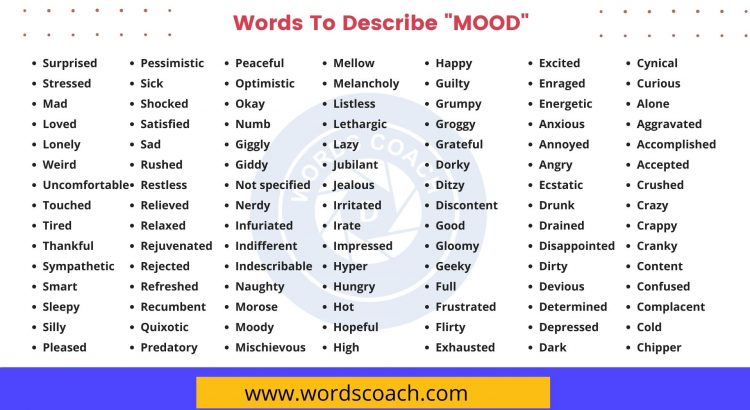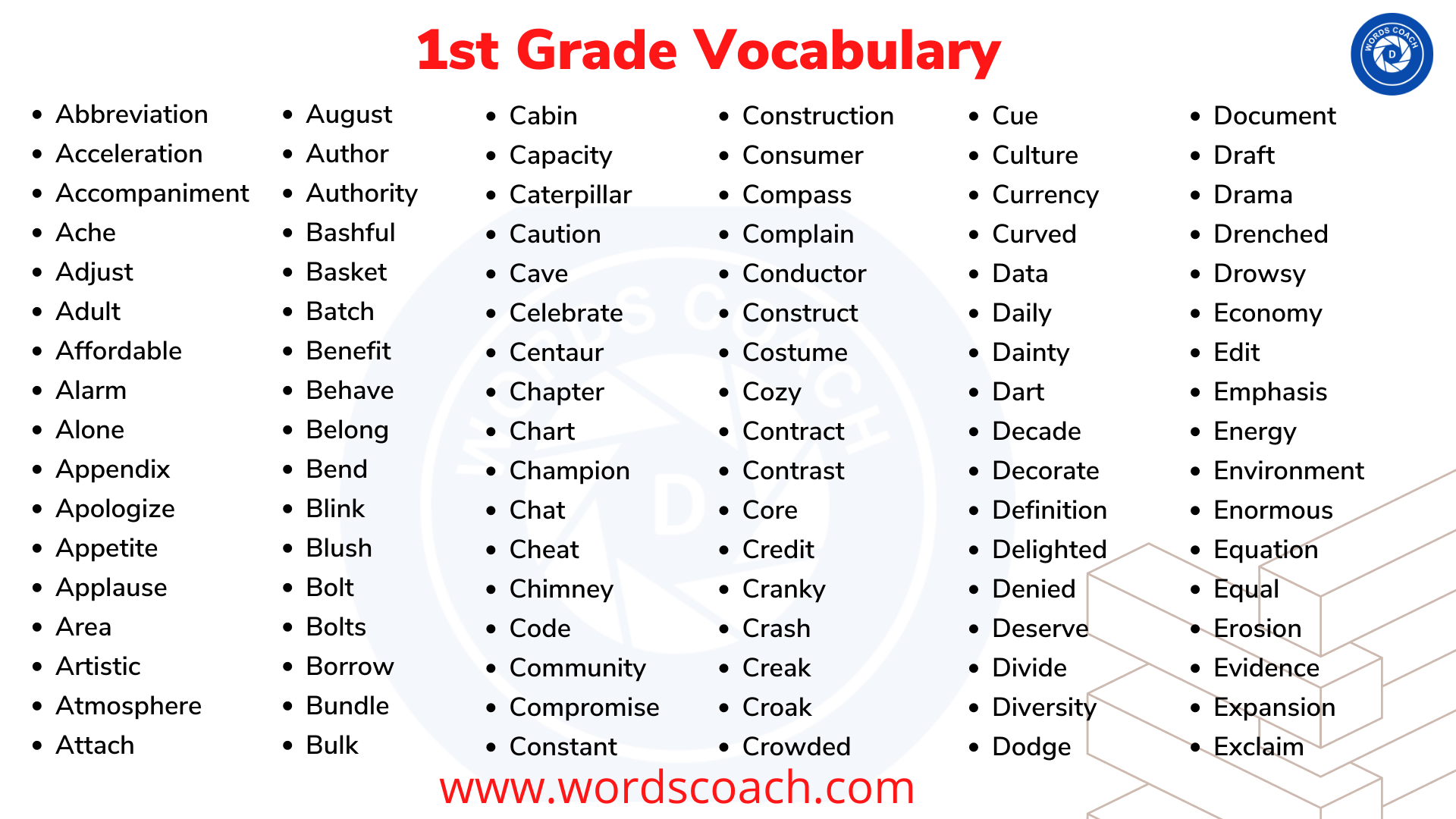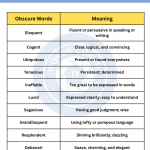Words to Describe Mood: How to Communicate Emotions Through Language
We use to describe mood can have a powerful impact on how we communicate our emotions to others. Whether you’re writing a novel, crafting a poem, or simply trying to convey your feelings in a personal conversation, having a strong vocabulary of mood descriptors is key. In this blog, we’ll explore some common words used to describe mood, and how they can be used to convey emotions in your writing and communication.
Positive Mood Words:
Blissful – a state of pure happiness and contentment
Example: “She felt blissful after spending the day at the beach.”
Ecstatic – a feeling of intense joy and excitement
Example: “He was ecstatic when he found out he got the job.”
Radiant – a state of happiness that shines outward and illuminates the world
Example: “The bride looked radiant on her wedding day.”
Serene – a feeling of calm and peacefulness
Example: “The sound of the ocean made her feel serene.”
Euphoric – a state of intense happiness and elation
Example: “Winning the championship made the team feel euphoric.”
Negative Mood Words:
Melancholy – a feeling of deep sadness and sorrow
Example: “The sound of rain made her feel melancholy.”
Despair – a feeling of hopelessness and sadness
Example: “He felt despair after the loss of his loved one.”
Gloomy – a feeling of sadness and darkness
Example: “The dark clouds made her feel gloomy.”
Tense – a feeling of anxiety and nervousness
Example: “She felt tense before the job interview.”
Dismal – a feeling of gloom and sadness
Example: “The dismal weather matched his mood.”
Neutral Mood Words:
Pensive – a feeling of deep thoughtfulness and introspection
Example: “She was pensive as she stared out the window.”
Reflective – a feeling of contemplation and introspection
Example: “He was reflective as he considered his options.”
Ambivalent – a feeling of uncertainty and mixed emotions
Example: “She was ambivalent about the decision she had to make.”
Indifferent – a feeling of apathy and lack of interest
Example: “He was indifferent to the news.”
Detached – a feeling of emotional distance or separation
Example: “She felt detached from the situation.”
MOOD Words
| Surprised | Stressed |
| Mad | Loved |
| Lonely | Weird |
| Uncomfortable | Touched |
| Tired | Thankful |
| Sympathetic | Smart |
| Sleepy | Silly |
| Pleased | Pessimistic |
| Sick | Shocked |
| Satisfied | Sad |
| Rushed | Restless |
| Relieved | Relaxed |
| Rejuvenated | Rejected |
| Refreshed | Recumbent |
| Quixotic | Predatory |
| Peaceful | Optimistic |
| Okay | Numb |
| Giggly | Giddy |
| Not specified | Nerdy |
| Infuriated | Indifferent |
| Indescribable | Naughty |
| Morose | Moody |
| Mischievous | Mellow |
| Melancholy | Listless |
| Lethargic | Lazy |
| Jubilant | Jealous |
| Irritated | Irate |
| Impressed | Hyper |
| Hungry | Hot |
| Hopeful | High |
| Happy | Guilty |
| Grumpy | Groggy |
| Grateful | Dorky |
| Ditzy | Discontent |
| Good | Gloomy |
| Geeky | Full |
| Frustrated | Flirty |
| Exhausted | Excited |
| Enraged | Energetic |
| Anxious | Annoyed |
| Angry | Ecstatic |
| Drunk | Drained |
| Disappointed | Dirty |
| Devious | Determined |
| Depressed | Dark |
| Cynical | Curious |
| Alone | Aggravated |
| Accomplished | Accepted |
| Crushed | Crazy |
| Crappy | Cranky |
| Content | Confused |
| Complacent | Cold |
| Chipper | Cheerful |
| Calm | Bouncy |
| Bored | Blissful |
| Blank | Blah |
| Bittersweet | Bewildered |
| Awake | Ashamed |
| Apathetic | Amused |
| Exanimate | Envious |
| Enthralled |
Having a strong vocabulary of mood descriptors can be incredibly valuable in both writing and communication. By using words to describe how you feel, you can convey your emotions more effectively and connect more deeply with those around you. Whether you’re trying to express joy, sadness, or something in between, the right words can help you communicate your mood with power and precision.






